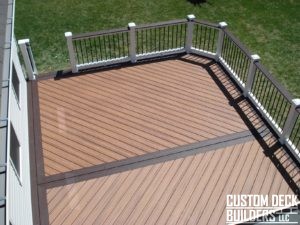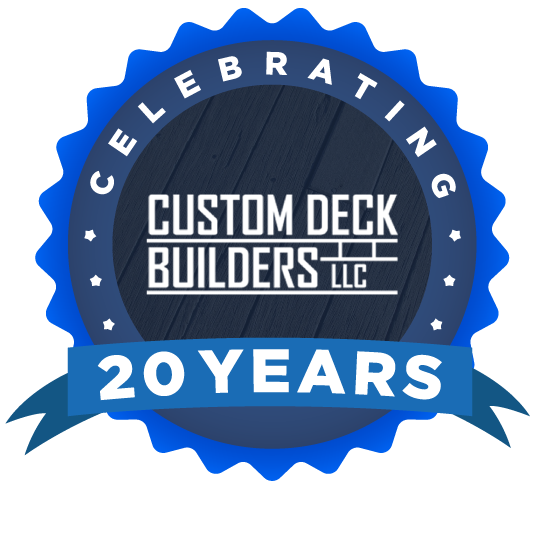
Summer has finally arrived and all you can think about is firing up the barbeque, having a few cold ones, and enjoying the long warm days with family and friends. But let’s face it: if your outdoor setting is a couple of threadbare lawn chairs and a cooler, it might be time to consider building a deck—one that allows you to bring the comfort of your home outdoors.
When it comes to figuring out the best design for your deck, the sky is really the limit as long as your idea fits both within your available budget and outdoor space. To help you zero in on the right design, here are some ideas to get your creative juices flowing and help you answer the question, “what is the right deck design for me?” While reviewing each, be sure you answer the following questions:
-
What works with your home and property?
-
What is the intended use for your deck?
-
What is your budget?
Platform Deck
Platform decks are the simplest and most common types of deck. They sit low to the ground but usually need a level lot to be built successfully. These types are most often attached to single-level homes and can be a great choice for a smaller space. Also, since they are so low to the ground, platform decks don’t require as much material or have as many safety requirements, such as railings.
The downside of a platform deck is that waterproofing the materials becomes a top priority and can drive price. Even with the additional hassle of waterproofing, however, it’s still very important because platform decks sit close to the ground and are most affected by the weather—especially precipitation and flooding. Materials should be pressure-treated and must have enough protective sealer to withstand high level of water damage before they are built into the ground.
Raised Deck
Most multi-level homes, or those that have yards which aren’t level, require raised decks.
These decks offer unique benefits including a wider visual range from a higher vantage point, a better breeze, and depending on the siting of your neighbors’ homes, more privacy. With the addition of a raised deck, you can create a space for socializing and hosting which feels special.
A big advantage of raised decks is that water damage isn’t as much of a priority. Safety, however, is definitely a concern with a higher structure, so raised decks have additional safety and foundational requirements such as railings, which need to be accounted for and will increase cost.
Detached or Free-Standing Deck
When a house’s construction does not allow for a ledger board—which is needed for an attached deck—a freestanding deck is the way to go. Freestanding decks are built similarly to attached decks, except footings, posts, and beams replace the ledger.
You can leverage your existing landscaping with these decks as well by building them in the middle of shrubs, trees, or flowers. Imagine having your own secret garden where you can escape to relax and take in the beautiful natural surroundings.
Multi-Level Deck
Multilevel decks are a series of decks connected by stairways or walkways. They are popular for larger homes and for homeowners who want to create visual separation between the different spaces. Each level can serve its own functional purpose, with the focus of the lowest perhaps being relaxing after hours and the highest sunbathing. Multilevel decks are also great for extremely sloped or uneven lots since they follow the contours of the ground.
While they are ideal for larger spaces, multilevel decks aren’t as appropriate for smaller spaces. As with any small space, the more the flow of the open space is obstructed, the smaller the space seems. A multi-level deck requires a lot of supportive beams and foundation, creating a complex look that isn’t streamlined enough for small spaces.
Budget Is Important
Regardless of where your creativity takes you, very often budget is the ultimate decision maker for any major home investment (like a deck). Unfortunately everyone faces budgetary limitations! There are three main factors that will impact the budget:
-
Hard cost
-
Square footage
-
Quality of Materials
In the case of deck design, the less materials that are needed, the lower the price. If your budget is low, you might want to focus your efforts on a platform deck. Of course, even with an unlimited budget, bigger isn’t always better. Something that is aesthetically pleasing and makes sense within the limitations of your property is best, notwithstanding the budget. Also you can get creative with the type of materials you would like to use. Opt for lower cost materials such as vinyl, composite, and aluminum. Steer clear of exotic woods such as Ipe, Tigerwood, or Brazilian Redwood, as they will drive your budget exponentially.
Regardless of your budget, professional advice is just a few clicks away so you can make your deck dreams a reality this summer.






